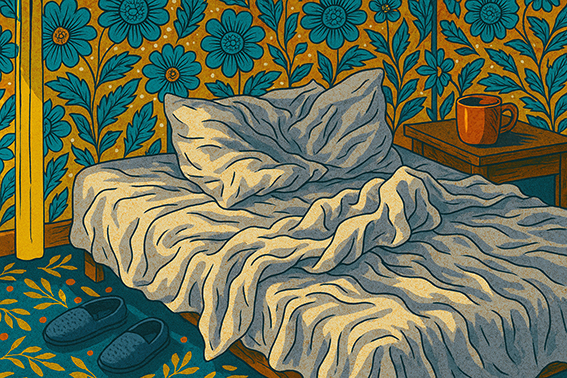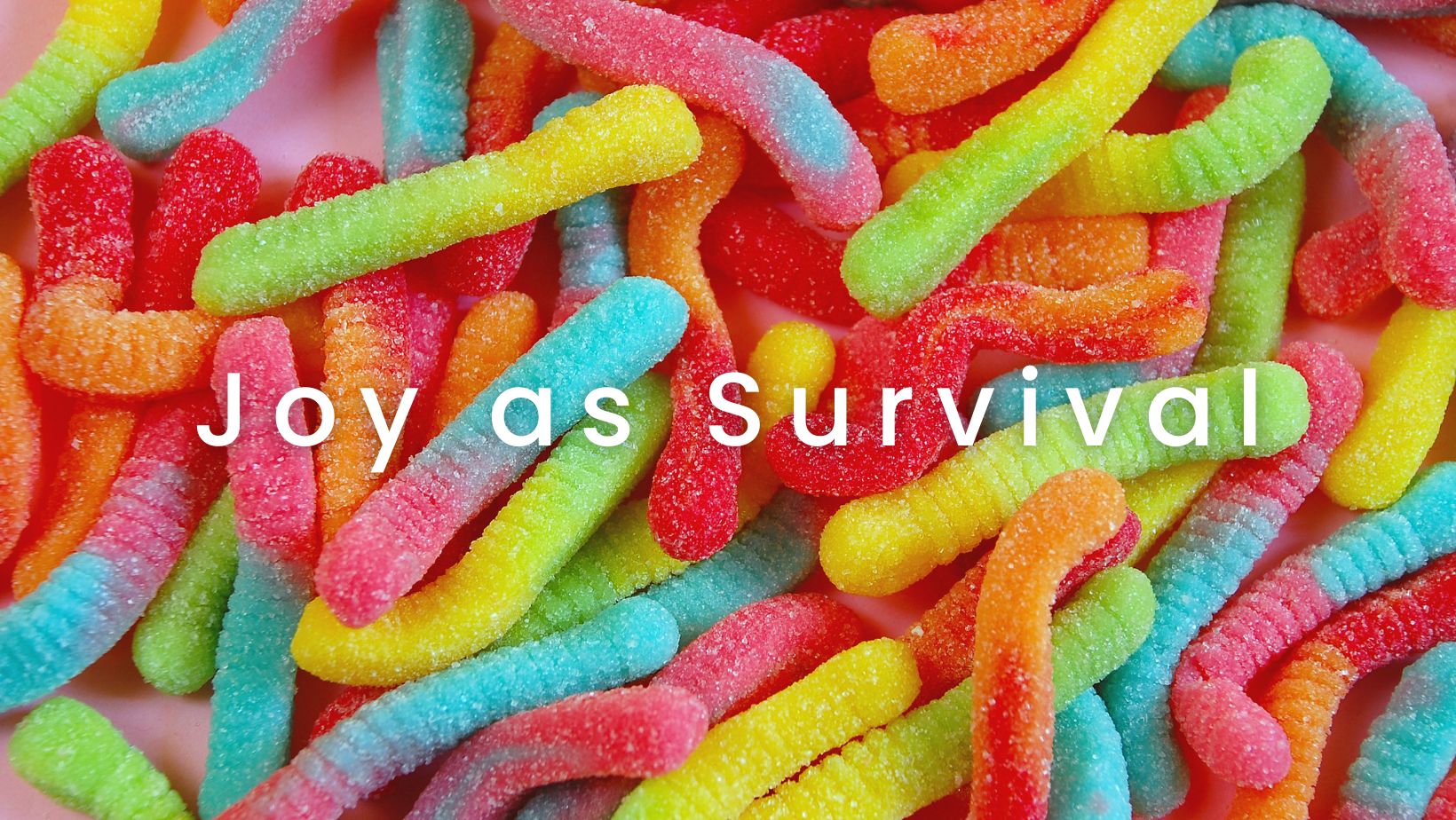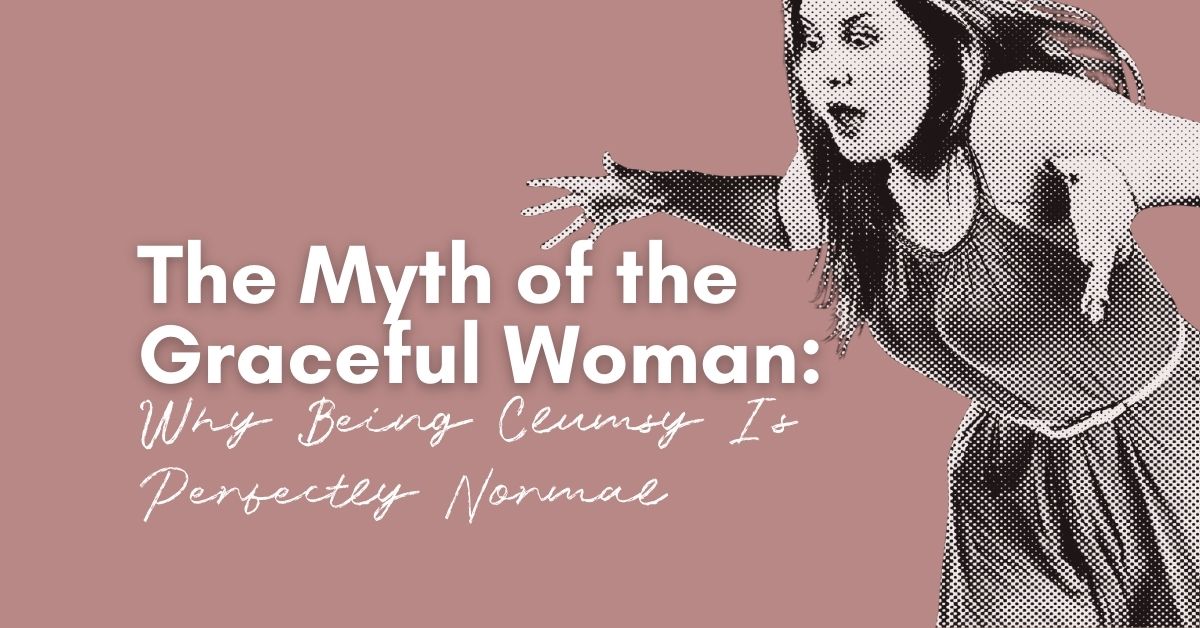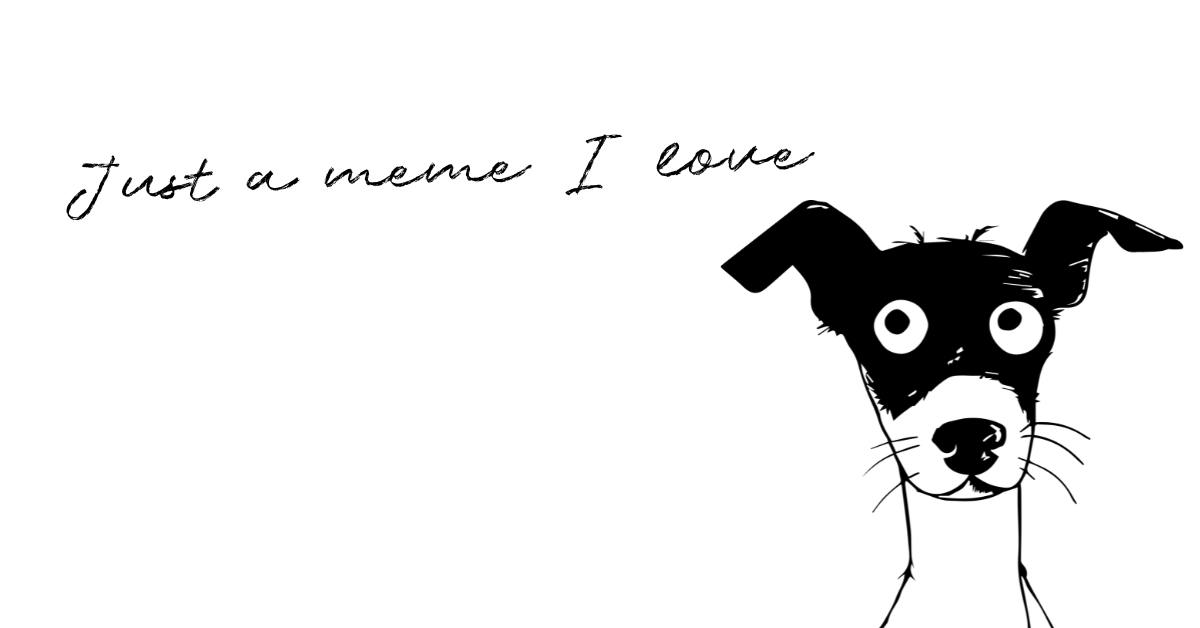It starts with the sigh.
You know the one.
The long, deflated breath you let out when you finally sit down: spine slack, eyelids twitching, coffee gone cold beside you. The breath that says I’ve had enough, even when your to-do list screams more. And then, like clockwork, comes the guilt.
Shouldn’t you be doing something?
Something productive. Something useful. Something Instagrammable. Something heroic. Something that makes you look less… weak?
Rest, in this world, is framed as failure unless it’s earned. And even then, only just.
The Hustle is a Cult, and We’re All in It
We live in a culture where burnout is a badge of honour. Where busy-ness is virtue, exhaustion is currency, and rest is treated like dessert, a sugary reward after you’ve swallowed the meat and bones of your suffering.
But here’s the uncomfortable truth: rest is not a reward. It’s a right.
And yet most of us, especially those who care for others, live with chronic conditions, juggle invisible workloads, or simply exist in survival mode, don’t believe we’ve earned it. We need to be told. Given permission. Prescribed it like paracetamol.
I still catch myself apologising for needing rest. I soften the language. I say, “I’m just going to lie down for a minute,” instead of “I’m shutting the world out because I’m completely depleted.” I say “I’m tired” instead of “I’m in pain.” I say nothing at all and power through, because who wants to be the fragile one?
It’s a scam. And it’s killing us slowly.
The History We Inherited (And Didn’t Ask For)
We didn’t create this culture of grind. We inherited it: a system shaped by generations of economic pressure, industrial ideals, and a culture that confuses rest with laziness.
Historically, rest wasn’t just discouraged, it was denied. To the enslaved. The poor. The working class. Productivity was a measure of compliance. Rest was resistance.
Today, even self-care has been co-opted. It’s no longer about replenishing the soul, it’s about selling face masks and bath bombs to the already burnt out. Even our downtime is expected to be photogenic.
And if you live with a chronic illness? Rest becomes your entire life, and somehow still, people expect you to justify it. To prove you’re not just lazy, flaky, or attention-seeking.
Rest is Resistance
Audre Lorde said it best:
“Caring for myself is not self-indulgence; it is self-preservation.”
Rest is not about quitting. It’s about surviving a system that rewards overextension and punishes stillness.
It’s about reclaiming softness in a world that demands sharp edges.
It’s about trusting your body over your inbox.
Rest is how we remember we’re human.
What Rest Actually Looks Like (Spoiler: Not Always Pretty)
Let’s get something straight: rest isn’t always wrapped in silk pajamas with lo-fi beats in the background. Sometimes rest is ugly. Messy. Loud. Sometimes it’s:
- Crying in the bath until your sinuses are clear.
- Saying “no” without offering an excuse.
- Sleeping in clothes that aren’t pajamas because that’s all you could manage.
- Letting the dishes wait.
- Cancelling plans, even with people you love.
- Turning off your phone.
- Doing nothing, not meditating, not manifesting, not improving yourself. Just… nothing.
Real rest is not aesthetic. It’s sacred.
You Don’t Need Permission, But Here It Is Anyway
If you need someone to say it, let me be the voice:
You are allowed to rest.
Not because you worked hard enough.
Not because you’re falling apart.
Not because you ticked every box.
But because you are a living being.
And living beings need rest.
No one questions a dog for napping in the sun.
No one asks a tree to bloom year-round.
But somehow, you, with your spiralling inbox and shrinking patience and bones that ache when it rains, are expected to keep going like a machine.
You are not a machine.
You are not a machine.
You are not a machine.
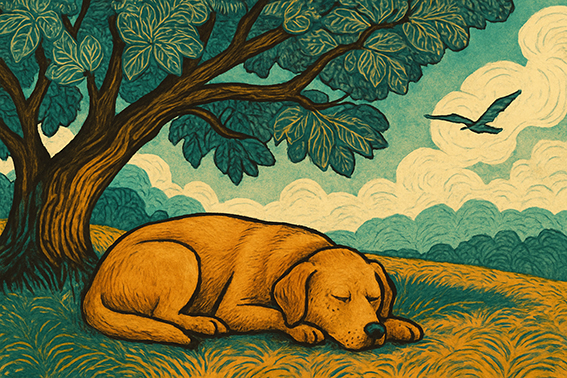
Let the World Wait
The revolution isn’t in the doing. It’s in the being.
It’s in saying, “Not today, thanks.”
It’s in horizontal activism; in naps, in stillness, in choosing slowness when the world demands speed.
Rest isn’t the opposite of action. It’s what allows us to continue.
So lie down. Log off. Let the world wait.
It can handle itself for a while.
And if it can’t? That’s not your fault either.
Tell me…
- Do you struggle with guilt when you rest?
- What’s one way you’re reclaiming rest in your own life?
- Should we start a nap revolution?
Let’s talk in the comments, but only after your nap.
